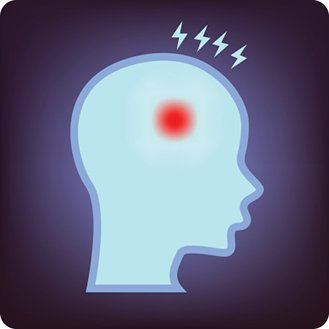Stroke. Three letters that scare. They report a stroke . In other words, blood does not circulate properly in the brain due to a clot obstructing a blood vessel (80% of strokes) or rupture of the latter (20% of cases). Whatever the cause, it is a medical emergency since the brain is deprived of oxygen . When it occurs, the consequences of stroke are serious: 62,000 people die each year. In women, it is even the leading cause of death . Other impacts: 34% of those affected can no longer walk without assistance and 25% have a disability. Only 41% do not have a sequela *.
• Reflex # 1: do the 15. Sudden facial paralysis, inertia of a limb, speech disorder: in the presence of one of these 3 signs of stroke, it is necessary without wasting time to do the 15 for that the affected person can be transported to a neurovascular unit . It is indeed a matter of minutes. It is usually 4:30 to act and unclog the blood vessel clogged with a clot, causing the stroke. "The faster we go, the less the brain is damaged," says Dr. François Rouanet Pellegrin Hospital CHU Bordeaux. A recent survey shows that less than 1 in 2 French can identify a person with a stroke **.
• Reflex # 2: prevent recurrence. 30% to 43% of people who have had a stroke are likely to have a second one within five years . The hygiene of life is then essential because it acts on the risk factors which can accelerate a recurrence. Hypertension, overweight, sedentary lifestyle, smoking, diabetes, hypercholesterolemia ... are all sensitive to what you eat (lots of vegetables and fruits, not too much ready-made products, not too much salt no sugar ...) and everyday choices (it is better to stop smoking and have a physical activity). Finally last risk factor: atrial fibrillation - an abnormal heart rhythm - which requires the use of anticoagulant drugs.
• Reflex # 3: Regularly monitor your blood pressure. It is indeed high blood pressure the first risk factor for stroke. In theory, it must remain below 14/9. Beyond that we suffer from hypertension (7 million French would be concerned).
To find out more: Association France AVC
* Ifop / Bayer study Sept. 2013.
** Ipsos-Boehringer-Ingelheim study, August 2013.


